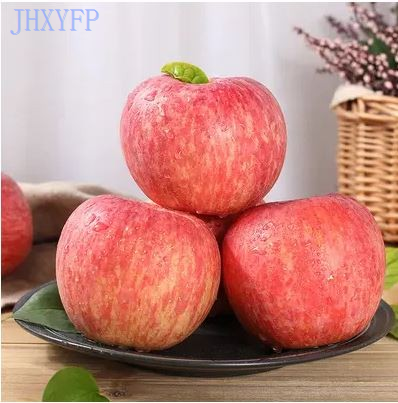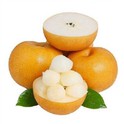As a Fuji apple supplier, I've always been fascinated by the intricate relationship between these delicious fruits and the natural world. One question that often comes up is whether Fuji apples attract bees. In this blog post, I'll delve into the science behind this query, sharing insights based on my experience in the industry and relevant research.
The Basics of Pollination
Before we can determine if Fuji apples attract bees, it's essential to understand the role of pollination in apple production. Apples, including Fuji varieties, are angiosperms, which means they reproduce through flowers. Pollination is the process by which pollen from the male part of a flower (the anther) is transferred to the female part (the stigma). This transfer is crucial for fertilization and the development of fruits.
Bees are one of the most important pollinators in the world. They are attracted to flowers by their colors, scents, and the promise of nectar and pollen. As bees move from flower to flower, they inadvertently pick up and deposit pollen, facilitating cross - pollination. This cross - pollination is vital for apple trees because most apple varieties are self - incompatible, meaning they cannot pollinate themselves effectively.
Fuji Apple Flowers and Bee Attraction
Fuji apple trees produce beautiful, white to pinkish flowers in the spring. These flowers have several characteristics that make them appealing to bees.
Color: Bees can see a wide range of colors, including ultraviolet light. Fuji apple flowers typically have bright colors that are visible to bees. The contrast between the petals and the reproductive parts of the flower makes it easy for bees to locate the nectar and pollen sources.
Scent: Flowers emit scents that act as chemical signals to attract pollinators. Fuji apple flowers have a sweet, pleasant fragrance that is attractive to bees. The scent helps bees find the flowers from a distance, guiding them to the rich food sources within.
Nectar and Pollen: Nectar is a sugary liquid produced by flowers as a reward for pollinators. Fuji apple flowers produce nectar, which provides bees with the energy they need for flight and survival. Additionally, the flowers produce pollen, which is a rich source of protein for bees. The combination of nectar and pollen makes Fuji apple flowers an attractive food source for bees.
The Importance of Bees for Fuji Apple Production
As a Fuji apple supplier, I can attest to the crucial role that bees play in our industry. Without proper pollination, the yield and quality of our apples would be severely affected.
Yield: Adequate pollination by bees leads to a higher fruit set. When more flowers are successfully pollinated, more apples will develop on the tree. This means a larger harvest for us as suppliers, which is essential for meeting the market demand for Fuji apples.
Quality: Pollination also affects the quality of the apples. Well - pollinated apples tend to be larger, more symmetric, and have better flavor. Bees help ensure that the fruits develop properly, resulting in Fuji apples that are Crisp And Sweet Apples, which are highly sought after by consumers.


Our Efforts to Support Bee Populations
Given the importance of bees for our Fuji apple production, we take several steps to support bee populations on our orchards.
Planting Bee - Friendly Plants: We plant a variety of wildflowers and other bee - friendly plants around our orchards. These plants provide additional sources of nectar and pollen for bees, especially during times when the apple trees are not in bloom. This helps to maintain a healthy bee population in the area.
Avoiding Pesticide Overuse: We are very careful about our pesticide use. Pesticides can be harmful to bees, so we use integrated pest management techniques to control pests while minimizing the impact on bees. This includes using pesticides only when necessary and choosing products that are less toxic to bees.
Providing Bee Habitats: We also provide artificial bee habitats, such as bee boxes, in our orchards. These habitats give bees a safe place to nest and raise their young, which helps to increase the bee population in the area.
Marketing Our Fuji Apples
Our Fuji apples, known as Fuji Apple Star, are of the highest quality, thanks in large part to the successful pollination by bees. We package our apples in beautiful Apple Gift Box, making them perfect for gifts or personal consumption.
Our apples are not only delicious but also a product of sustainable agriculture. By supporting our bee - friendly practices, consumers are not only getting a great - tasting fruit but also contributing to the preservation of the environment.
Contact Us for Purchasing
If you're interested in purchasing our high - quality Fuji apples, we would love to hear from you. Whether you're a grocery store owner, a distributor, or an individual looking for the best apples, we can provide you with the quantity and quality you need. Please reach out to us to start a discussion about your purchasing requirements. We're committed to providing excellent customer service and ensuring that you're satisfied with your purchase.
References
- Free, J. B. (1993). Insect Pollination of Crops. Academic Press.
- Klein, A. - M., Vaissière, B. E., Cane, J. H., Steffan - Dewenter, I., Cunningham, S. A., Kremen, C., & Tscharntke, T. (2007). Importance of pollinators in changing landscapes for world crops. Proceedings of the Royal Society B: Biological Sciences, 274(1608), 303 - 313.
- McGregor, S. E. (1976). Insect Pollination of Cultivated Crop Plants. United States Department of Agriculture.






